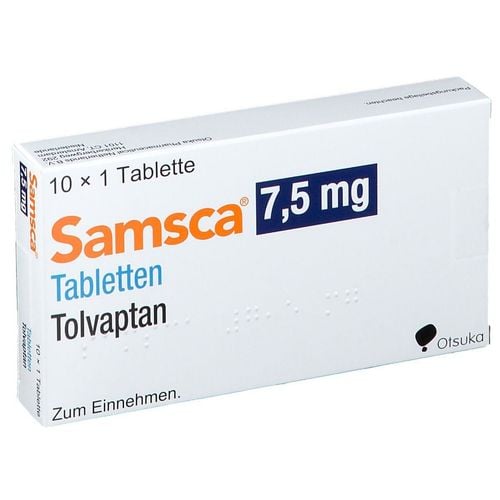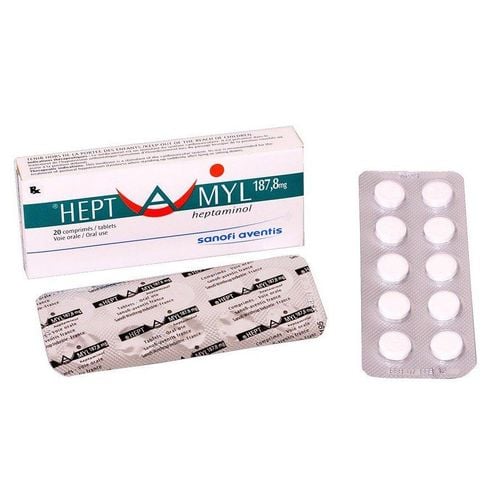This is an automatically translated article.
Chromium is an important trace element in the development of the body, found in many foods. When the body can not absorb chromium through the diet due to many reasons, it is necessary to supplement Chromium in the form of drugs.
1. What is Chromium?
Chromium or metal Chromium (Cr) - is a trace element necessary for many metabolic and metabolic activities of the body. In the body Chromium is used as an aid to control blood sugar in diabetics, control blood lipids in patients with high cholesterol and is an important ingredient in weight loss foods. Chromium is a nutrient that, although required in small amounts, is important in the body's metabolism of glucose, insulin and blood lipids.
Chromium-containing compounds are mostly absorbed by the lungs and gastrointestinal tract. Absorption from the gastrointestinal tract is only about 0.5 to 10%. In the form of chemotherapy VI, chromium is easier to absorb than chemotherapy III because it penetrates the cell membrane. After penetrating the membrane, Chromium VI will convert to Chromium III - the active form of the sulfhydryl groups of amino acids. The drug binds to macromolecules, transferrin and plasma proteins. Vitamin C and B vitamins enhance chromium absorption. Chromium is distributed in most tissues in the body, accumulating in the liver, kidneys, spleen, soft tissues and bones. Finally excreted in the urine 80%; through hair, sweat and bile (20%).
2. Indications of the drug Chromium
Chromium is indicated in the following cases:
Parenteral nutrition supplementation for patients with decreased plasma chromium levels. Mineral supplements for patients with diabetes, dyslipidemia. People who are losing weight on a nutritionally deficient diet. Add chromium for patients with weakness, coma, prolonged diarrhea, vomiting.
3. Contraindications of the drug Chromium
Cases not to use Chromium drugs:
Patients are allergic to Chromium or any other ingredient of the drug. Patients with moderate to severe renal impairment must have a doctor's prescription and supervision when using Chromium. The drug is metabolized mainly in the liver, so patients with liver failure should not use chromium containing products. Patients with neuropsychiatric diseases such as depression, schizophrenia, agitation, anxiety. Thyroid dysfunction. Note when using Chromium:
At the recommended dose, Chromium is relatively safe. However, pregnant and lactating women should consult a doctor when using it because it is not completely safe for the fetus and breast-feeding children. Chromium-containing preparations may worsen symptoms of neuropsychiatric diseases such as anxiety, schizophrenia, depression, etc. Patients with a history of skin allergy when exposed to chromium also Allergic reactions may occur with oral and parenteral administration, and should be used with caution. Monitor gastrointestinal problems such as stomach ulcers, indigestion, loss of appetite, belching, and heartburn during the course of medication. Children using the drug need a doctor's prescription. If you can supplement with food sugar, you should not use Chromium drugs, some foods contain a lot of chromium such as: broccoli, potatoes, green beans, brewer's yeast, whole grains, apples, bananas, grapes milk and dairy products,...
4. Chromium drug interactions
In combination with Aspirin or non-steroidal anti-inflammatory drugs (NSAIDs), corticosteroids can increase the concentration of Chromium and increase the specific side effects on the gastrointestinal tract. Beta-blockers such as atenolol and propranolol when co-administered with Chromium may alter their bioavailability. Patients who are being treated for thyroid disease with Levothyroxine should take Chromium before 3-4 hours or after 30 minutes to ensure the effect of the drug. Concomitant use with insulin, Metformin or other hypoglycemic agents increases the risk of hypoglycaemia. When using Chromium in combination with any other drugs, it is necessary to consult a doctor. Tobacco, alcohol and alcoholic foods can alter the bioavailability of the drug.
5. Dosage and how to use Chromium drug
Usage:
Chromium can be used orally or by injection depending on the doctor's prescription. Before use, it is necessary to check the blood sugar index. Depending on your age and body condition, the doctor has different instructions for use and dosage. Dosage:
Women from 19 to 50 years old need to supplement 25mcg/day. Women over 50 need 20mcg/day. Men between 19 and 50 years old need 35mcg/day. Men over 50 need 30mcg/day. Children under 1 year old dose 0.2 mcg - 5.5 mcg / day. Children under 3 years of age: 10 to 80 mcg/day. Children under 6 years of age: 120 mcg/day. Children 7 to 10 years old use 50-200 mcg/day. If you forget to take a dose, use it again as soon as possible. However, if it is almost time for your next dose, skip the missed dose and take your next dose on time. Do not use double the forgotten dose of Chromium.
Dosage is for reference only, depending on the condition and condition of each person, the doctor will have an appropriate treatment dose.
6. Chromium drug side effects
Some unwanted effects may be encountered when using Chromium
Allergic reactions, skin itching, rash, urticaria. Poor sleep, poor sleep, headaches, mood swings. Difficulty concentrating, fatigue. Nausea, abdominal pain, loss of appetite. Dark urine, pale stools. In summary, Chromium is a drug that helps to supplement trace elements for the body when the diet is deficient or inadequate. Medicines are prescribed and monitored by doctors, so patients do not arbitrarily take or stop using them.













